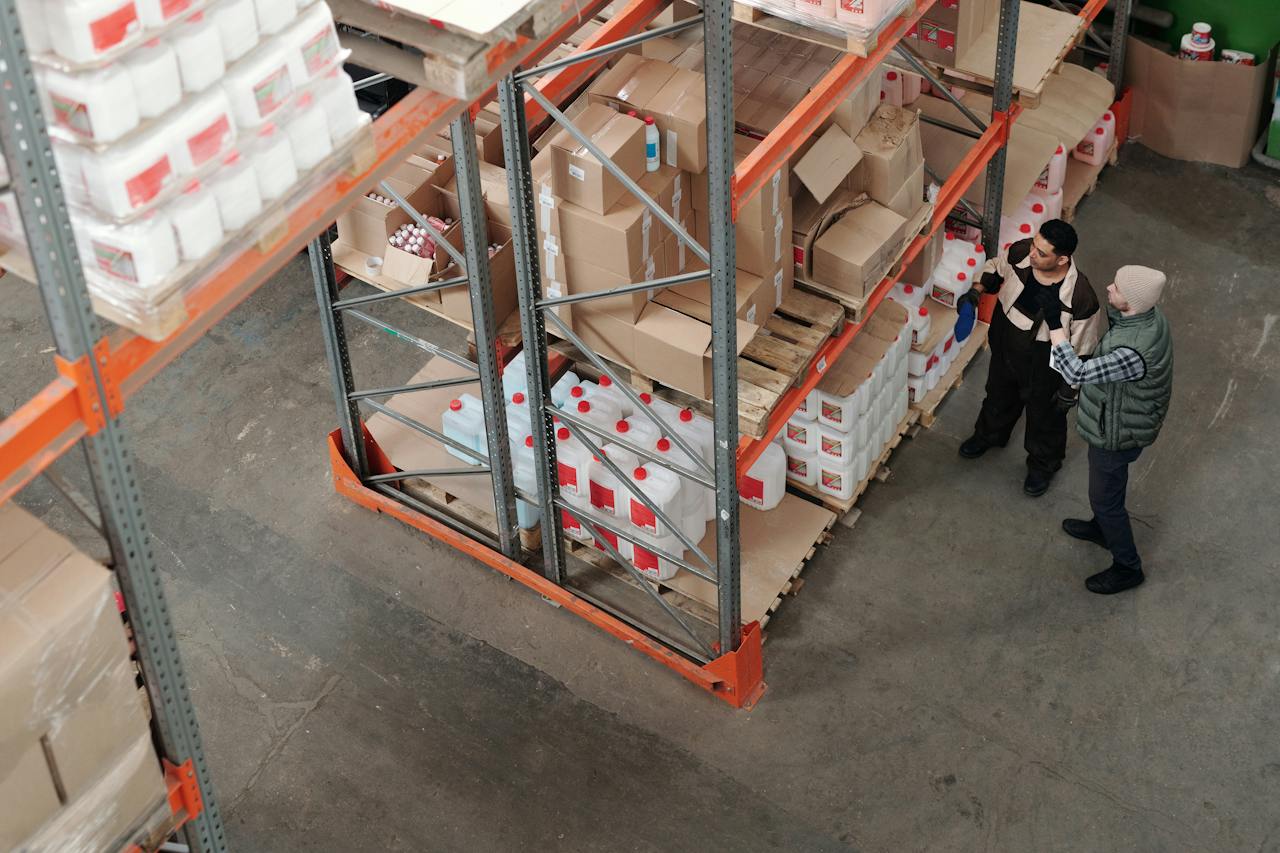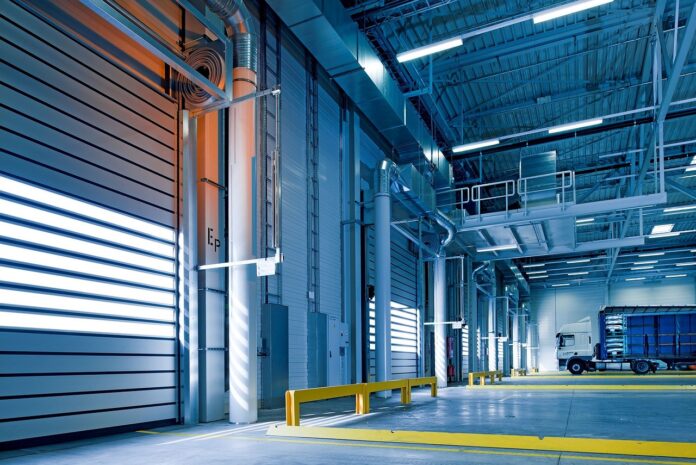In the dynamic landscape of modern supply chain management, warehouses play a pivotal role in ensuring the smooth flow of goods from manufacturers to end-users. Efficient warehouse operations are crucial for businesses aiming to meet customer demands promptly and maintain a competitive edge. One often overlooked aspect contributing significantly to warehouse efficiency is the utilization of fabrication services. These services involve the custom design, construction, and installation of specialized equipment and structures within warehouses, tailored to meet specific operational needs. In this article, we will delve into the multifaceted ways in which fabrication services enhance warehouse efficiency, from optimizing storage solutions to streamlining material handling processes.
Customized Storage Solutions
One of the primary contributions of fabrication services to warehouse efficiency lies in the creation of customized storage solutions. Standardized shelving and storage systems may only sometimes align with the unique requirements of a particular warehouse. Fabrication services empower businesses to design and implement storage solutions that maximize available space, cater to the nature of the stored goods, and facilitate streamlined picking and packing processes. For instance, custom racks and pallet systems can be engineered to accommodate irregularly shaped items or products with varying dimensions, ensuring efficient space utilization and minimizing the risk of damage during storage or retrieval. This bespoke approach to storage enhances overall efficiency and contributes to a more organized and easily navigable warehouse environment.
Streamlined Material Handling Processes
Fabrication services prove instrumental in optimizing material handling processes within warehouses, leading to substantial gains in efficiency. Customized conveyor systems, for example, can be designed to transport goods seamlessly through various stages of the warehouse, from receiving to shipping. These tailor-made systems not only reduce manual handling requirements but also enhance the speed and accuracy of order fulfillment. Furthermore, fabrication services can be utilized to create specialized lifting and loading equipment, tailored to the specific characteristics of the goods being handled. This ensures that materials are moved with precision, minimizing the risk of damage and expediting the overall supply chain. By investing in fabrication services to customize material handling solutions, warehouses can achieve significant improvements in operational efficiency and throughput.
Infrastructure Optimization for Automation
In the era of Industry 4.0, automation has emerged as a key driver of warehouse efficiency. Fabrication services play a crucial role in optimizing warehouse infrastructure to accommodate automated systems seamlessly. This involves the design and fabrication of specialized structures, such as mezzanines and platforms, to support automated equipment like robotic picking systems and conveyors. The integration of automation not only accelerates order fulfillment but also reduces the reliance on manual labor, minimizing the risk of errors and enhancing overall efficiency. Fabrication services, when employed to customize the infrastructure for automation, enable warehouses to adapt to evolving technological trends, positioning them at the forefront of the modern supply chain landscape.
Advanced Crane Technology for Seamless Operations
For warehouses aiming to elevate their material handling capabilities, the integration of advanced crane technology is paramount. Companies specializing in fabrication services often offer a comprehensive line of crane products, including overhead bridge cranes, workstation cranes, patented track cranes, I-beam jib cranes, and gantries. These advanced crane systems provide versatile solutions for lifting and moving heavy loads within the warehouse. Overhead bridge cranes, for example, offer efficient vertical and horizontal movement, covering large areas with precision. Workstation cranes, on the other hand, are designed for smaller workspaces, allowing for precise load positioning.
The availability of patented track cranes, I-beam jib cranes, and gantries further adds to the flexibility of material handling options. To explore these cutting-edge crane technologies and find the most suitable solution for specific warehouse needs, interested parties can find more info from Tiger Material Handling or any other reputable website. By incorporating these advanced crane systems into their operations, warehouses can enhance efficiency, improve safety, and meet the evolving demands of the modern supply chain landscape.
Safety Measures and Compliance
In the pursuit of warehouse efficiency, ensuring the safety of both workers and the stored goods is paramount. Fabrication services play a crucial role in designing and implementing safety measures tailored to the unique aspects of each warehouse. This includes the installation of safety barriers, signage, and ergonomic workstations. Additionally, fabrication services can customize safety features for material handling equipment, such as sensors and automated emergency stop systems. Prioritizing safety not only minimizes the risk of accidents but also ensures compliance with industry regulations and standards. Warehouse managers looking to enhance safety measures can explore tailored solutions by consulting with fabrication service providers or seeking more info from reputable safety compliance resources.
Sustainable Warehouse Solutions

As sustainability becomes a central focus for businesses, fabrication services offer an avenue for warehouses to implement eco-friendly solutions. Customized fabrication allows for the creation of sustainable warehouse structures using environmentally friendly materials and energy-efficient designs. Furthermore, fabrication services can aid in the integration of renewable energy sources, such as solar panels, to power warehouse operations. By adopting sustainable practices through fabrication services, warehouses can reduce their environmental impact, meet corporate sustainability goals, and appeal to eco-conscious consumers. To explore sustainable warehouse solutions, interested parties can seek more info from reputable providers or sustainability experts.
Integration of IoT and Smart Warehouse Technologies
The advent of the Internet of Things (IoT) has transformed the warehouse landscape, and fabrication services play a crucial role in integrating smart technologies. Customized fabrication allows for the installation of IoT sensors and devices, enabling real-time monitoring of warehouse operations. This includes tracking inventory levels, monitoring equipment performance, and optimizing energy consumption. Smart warehouse technologies enhance decision-making processes by providing valuable data insights, ultimately contributing to increased efficiency and reduced operational costs. Warehouse managers interested in harnessing the power of IoT can explore tailored solutions by seeking more info from reputable IoT integration service providers or technology experts. Embracing these technologies positions warehouses at the forefront of the digital revolution in supply chain management.
In the intricate web of modern warehouse management, fabrication services emerge as indispensable allies for businesses striving to enhance efficiency, safety, and sustainability. From the customization of storage solutions to the integration of advanced crane technology and the adoption of smart warehouse measures, the impact of fabrication services reverberates across every facet of warehouse operations. These tailored solutions not only address current operational needs but also future-proof warehouses against the evolving demands of the supply chain landscape. As businesses navigate the complexities of the digital age and sustainability imperatives, leveraging fabrication services becomes a strategic imperative. By collaborating with reputable providers and exploring more info from specialized resources, warehouses can embark on a journey toward optimal efficiency, safety, and sustainability, securing their positions as agile and resilient components of the global supply chain.





